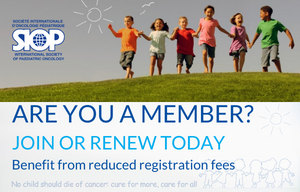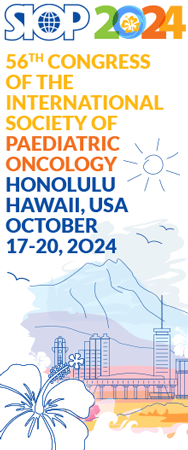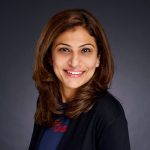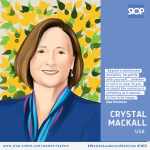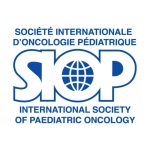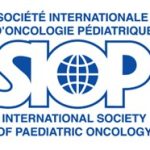This year’s 154th session of the WHO EB is taking place from 22–27 January 2024 at the WHO headquarters in Geneva, Switzerland.
As a non-state actor (NSA) in official relations with the WHO, SIOP submitted an individual statement and joined a number of constituency (or grouped) statements on agenda items relevant to our mission and vision.
These efforts were facilitated by the SIOP WHO Engagement Committee led by Prof Kathy Prichard-Jones.
You can watch the WHO Executive Board meeting (22 – 27 Jan) live on their web streaming page here.
You can view all statements submitted by NSAs here.
SIOP’s participation is summarized below.
Individual SIOP statement:
- WHO EB Agenda Item 12: “Accelerating towards SDGs – maternal health and child mortality”
“Cancer affects 400,000 children each year and is life-threatening. The incidence of cancer in childhood is highest in the under-5 age group. Only 30 percent of children with cancer survive in some low- and middle-income settings, compared to 80 percent in high-income countries. The WHO Global Initiative for Childhood Cancer (GICC) aims to strengthen health systems to improve survival by 2030 and already involves over 70 countries. We applaud these efforts and call on Member States to expand and support GICC implementation to reduce under-5 mortality due to childhood cancer and potentially strengthen child health systems in general. By acting now, we can still make a life-saving difference and sustain momentum towards achieving the SDGs and beyond.”
Constituency statements SIOP has joined:
- WHO EB Agenda Item 7: Prevention and control of non-communicable diseases (NCDs) – Political Declaration & Progress report
Statement led by NCD Alliance: The statement includes the call for Member States to step up action drawing on the NCD ‘best buys’ – an officially curated list of cost-effective policy options which has recently incorporated childhood cancer. An important mention is made of Universal Health Coverage (UHC) in this context. Indeed, UHC is indispensable to drive improvement in childhood cancer and as such represents a key pillar of the Global Initiative for Childhood Cancer (GICC) CureAll framework.“Cancer affects 400,000 children each year and is life-threatening. The incidence of cancer in childhood is highest in the under-5 age group. Only 30 percent of children with cancer survive in some low- and middle-income settings, compared to 80 percent in high-income countries. The WHO Global Initiative for Childhood Cancer (GICC) aims to strengthen health systems to improve survival by 2030 and already involves over 70 countries. We applaud these efforts and call on Member States to expand and support GICC implementation to reduce under-5 mortality due to childhood cancer and potentially strengthen child health systems in general. By acting now, we can still make a life-saving difference and sustain momentum towards achieving the SDGs and beyond.” - WHO EB Agenda Item 6: Universal Health Coverage (UHC)
Statement led by NCD Alliance: Building on SIOP’s engagement on access to medicines, the statement calls for the inclusion of NCD services and products under national UHC schemes and specifies child health as a key area requiring accelerated action.Statement led by International Pharmaceutical Students Federation: The importance of access to essential medicines – primordial for childhood cancer and a key focus of SIOP advocacy – is reflected in this statement as well. - WHO EB Agenda Item 25.4: Engagement with non-State actors (NSAs)Statement led by Save the Children: The statement acknowledges the support from WHO teams to individual NSAs in running their work programs and calls for continued NSA involvement in WHO governing bodies.
